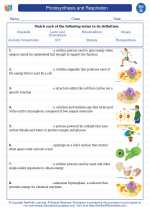Involuntary Behavior
Involuntary behavior refers to actions or processes that occur without conscious control or awareness. These behaviors are controlled by the autonomic nervous system and do not require conscious effort to occur.
Examples of Involuntary Behaviors
- Breathing: The process of inhaling and exhaling air is controlled by the autonomic nervous system and occurs involuntarily.
- Heartbeat: The contraction and relaxation of the heart muscles are involuntary and are regulated by the autonomic nervous system.
- Digestion: The movement of food through the digestive system and the secretion of digestive enzymes are involuntary processes.
- Reflexes: Responses to stimuli, such as the knee-jerk reflex, occur involuntarily and are controlled by the spinal cord.
- Pupil Dilation: The widening and narrowing of the pupils in response to light is an involuntary process.
Study Guide
Key Concepts
Understand the concept of involuntary behavior and how it differs from voluntary behavior. Be able to provide examples of involuntary behaviors and explain how they are controlled by the autonomic nervous system.
Autonomic Nervous System
Learn about the two branches of the autonomic nervous system: the sympathetic and parasympathetic nervous systems. Understand their roles in regulating involuntary processes such as heart rate, digestion, and pupil size.
Control of Involuntary Behaviors
Explore the mechanisms by which the body regulates involuntary behaviors. Study the role of reflex arcs, hormone secretion, and neurotransmitters in controlling involuntary processes.
Clinical Relevance
Consider the clinical implications of involuntary behaviors. Learn about conditions that can affect the autonomic nervous system and lead to dysregulation of involuntary processes, such as hypertension, digestive disorders, and autonomic neuropathy.
Review Questions
- What is the difference between involuntary and voluntary behaviors?
- How does the autonomic nervous system regulate involuntary processes?
- Provide examples of involuntary behaviors and explain how they are controlled by the body.
- What are some clinical conditions that can affect involuntary behaviors?
◂Science Worksheets and Study Guides Seventh Grade. Photosynthesis and Respiration
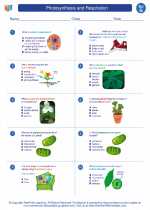
 Worksheet/Answer key
Worksheet/Answer key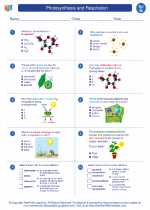
 Worksheet/Answer key
Worksheet/Answer key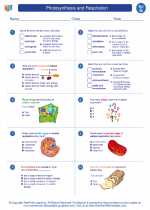
 Vocabulary/Answer key
Vocabulary/Answer key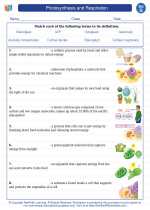
 Vocabulary/Answer key
Vocabulary/Answer key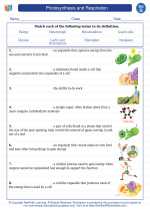
 Vocabulary/Answer key
Vocabulary/Answer key